Blessed Event (1932)
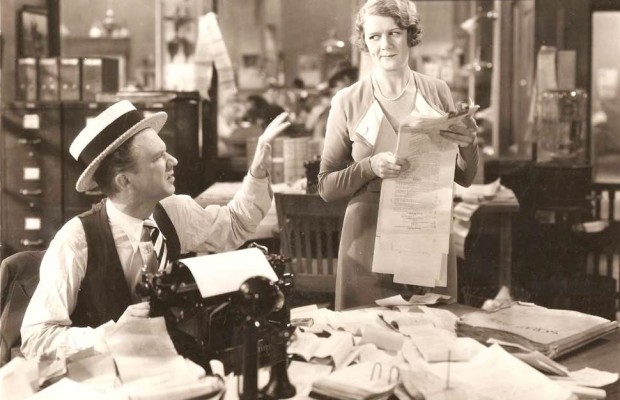
Toronto Film Society presented Blessed Event (1932) on Monday, September 23, 1985 in a double bill with Love Crazy as part of the Season 38 Monday Evening Film Buffs Series “B”, Programme 1.
Production Company: Warner Brothers. Director: Roy Del Ruth. Screenplay: Howard J. Green, adapted from the stage play by Manuel Seff and Forrest Wilson. Cinematographer: Sol Polito. Film Editor: Jim Gibbons.
Cast: Lee Tracy (Alvin Roberts), Mary Brian (Gladys Price), Allen Jenkins (Frankie Wells), Ruth Donnelly (Miss Stevens), Ned Sparks (George Moxley), Dick Powell (Bunny Harmon), Milton Maxwell (Moskowitz), Edwin Maxwell (Sam Goebel), Emma Dunn (Mrs. Roberts), Walter Walker (Louis Miller), Isabel Jewell (Dorothy Lane), Ruth Hall (Miss Bauman), George Chandler (Hanson), Frank McHugh (Reilly), Tom Dugan (Cooper), William Halligan (Herbert Flint), George Meeker (Church), Jesse DeVorska (Shapiro).
Blessed Event, a newspaper comedy-satire based on the rise of the fast-talking gossip columnist Walter Winchell, began life as a popular Broadway play. With the coming of sound to Hollywood, film producers increasingly seized on such material i the hope of creating sure-fire hits. In this case, Warner Brothers executives may also have hoped to emulate the success of Lewis Milestone’s The Front Page, released in the previous year. Hence their choice of Lee Tracy, who had portrayed Hildy Johnson on Broadway in 1930, for the role of Alvin Roberts, the unscrupulous circulation-building gossip columnist whose distaste for a young nightclub singer gets him into trouble. Whatever the motives behind their choice, it was an excellent one. Pauline Kael has remarked that “probably nobody in Hollywood history was better at the art of timing and placing a wisecrack than Lee Tracy” and in Blessed Event, he gives the performance of his career. With the able support of several of the finest character actors of the decade, Tracy transforms Blessed Event into a true “actor’s film.” The overall conception of the director here takes a back seat to the luminosity of the individual performances.
Mary Brian is the ‘nice-girl’ romantic lead, as she was in Milestone’s The Front Page. Some TFS members may have recently seen her in her film debut as WEndy in Herbert Brenon’s 1924 film Peter Pan, part of the Festival of Festivals “Open Vault” series.
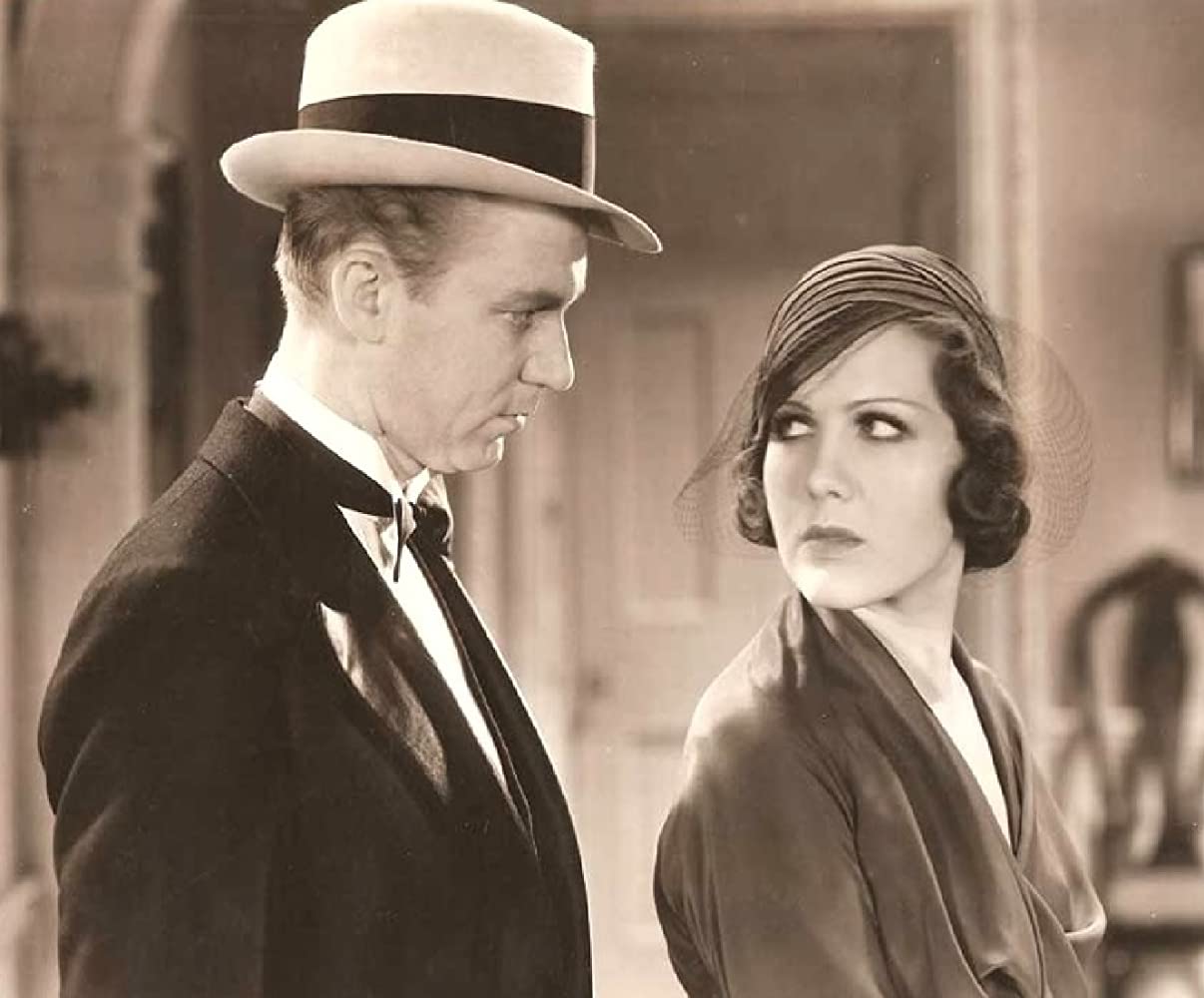
Allen Jenkins, Frank McHugh, and Ned Sparks portray Roberts’ cynical and hardened fellow-journalists. All were experienced character actors. Allen Jenkins played numbskulled, small-time gangsters of droll, Brooklynese blue-collar types in more than 175 productions from 1931 on. Frank McHugh appeared in some 156 features from 1930 on, usually in sympathetic character parts. It was probably his role as a reporter in Milestone’s The Front Page that determined his casting here. Ned Sparks, a dour-faced, rasping-voiced character comedian born in Ontario, came in for special praise. Variety‘s critic wrote: “The cadaverous Ned Sparks as the misanthropic newspaper veteran has the role of his life, an incidental part, but one that might have been picked for him from the literature of the world. He doesn’t miss a trick, and some of his brief scenes are the comedy highlights of the picture.”
Ruth Donnelly also won special praise as Roberts’ secretary Miss Stevens. Herself the daughter of a newspaperman, she specialized in fast-talking, sharp-tongued supporting roles, often as a shrewish wife or a flippant friend of the heroine. Emma Dunn, who plays Roberts’ mother, made a career out of matronly roles, beginning while still young. Isabel Jewell was brought to Hollywood to recreate her stage role in Blessed Event as the ruined gilt whose secret Roberts’ heartlessly exposes. She would later portray the young seamstress who accompanies Ronald Colman to the guillotine in A Tale of Two Cities (1935) and Scarlet’s shiftless neighbour Emmy Slattery in Gone With the Wind (1939).
Dick Powell’s role as the young nightclub singer Bunny Harmon was his second film appearance and demonstrated the fine singing voice that was to make him an overnight star in 42nd Street the following year. Powell was to prove an amazingly versatile actor, shifting from leads in Warner Bros. musicals of the 30’s to play the tough heroes of private-eye thrillers of the 40’s.
As for the director of the film, Roy Del Ruth, one is forced to agree with Andrew Sarris that he was “more a trend follower than a trend setter”. He was a solid craftsman in the best Hollywood tradition, however, and his direction is here enhanced by the cinematographic art of Sol Polito, whose work TFS members may have recently admired in the Festival of Festivals restored 35mm print of I Am A Fugitive From A Chain Gang (1932). Pauline Kael was certainly correct in describing Blessed Event as “quick and breezy and very likeable.”

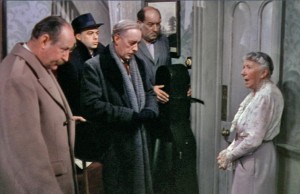
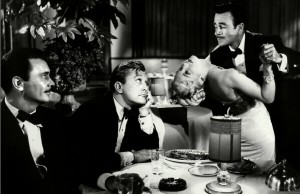
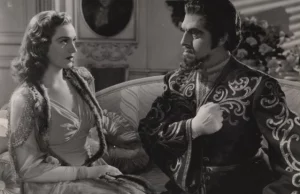






Leave a Reply